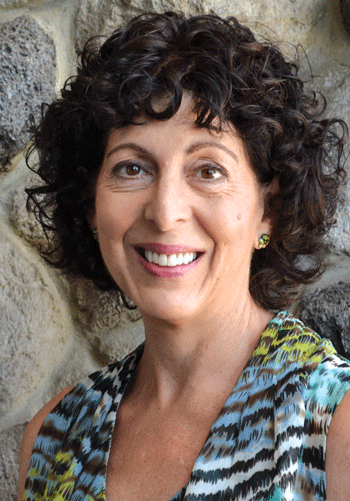The group’s signature presentation, ‘Israel and the Middle East: The Challenge of Peace,’ as well as its newer ‘Judaism on One Foot’ reach audiences of all types
By BRANDON KLUGMAN
While one’s opinion on conflicts in the Middle East can be shaped by countless factors, the speakers bureau at the Jewish Community Relations Council of Minnesota and the Dakotas (JCRC) is doing its part to educate people on the facts and history, and help them form a well-rounded view of the issues.
The speakers bureau offers two presentations, “Israel and the Middle East: The Challenge of Peace,” which is the more popular talk, and “Judaism on One Foot,” a basic overview of Jewish practices and beliefs.
Comprised of 10 to 12 volunteer speakers, the bureau gives 120 to 150 presentations each year to groups inside and outside of the Jewish community.
Steve Hunegs, the JCRC’s executive director, said the speakers bureau’s presentations are a valuable part of the organization’s efforts.
“It’s exceptionally important,” he said. “The ability, on a proactive basis, to reach out to churches, civic groups and schools, and bring a positive, fact-based expression of Israel and Middle East history is at the heart of our mission.”
The “Israel and the Middle East” presentation was first developed by Steve Lear and former JCRC executive director Steve Silberfarb in 2002. Initially given to informal gatherings, the presentation was officially brought under the JCRC umbrella and the speakers bureau was formed.

Sally Abrams: The objective of what we’re doing is to build relationships. It’s to educate and build relationships in the Jewish community and the broader community. (Photo: Mordecai Specktor)
Lear said initial reactions to the presentation ranged from fascination to skepticism.
“People were interested,” Lear told the AJW. “It was at the height of the intifada and people were trying to understand what was going on.”
Sally Abrams, a longtime volunteer speaker who now co-directs the speakers bureau, said the “Israel and the Middle East” talk presents factual information and conveys a centrist message.
“What we are presenting is a mainstream, compassionate, Zionist, Jewish, two-states-for-two-people message, a message that will resonate with the vast majority of American Jews and Israeli Jews,” she said.
Currently, presentations are given to any group that requests one, including church groups, schools, civic organizations, community education classes, parlor meetings and private gatherings, and groups in the Jewish community.
Holly Brod Farber, co-director of the speakers bureau, said she attributes the presentations’ success to the volunteer speakers and the JCRC, as well as the audiences.
“We have an excellent group of people supported by an excellent agency in an excellent community,” she said.
Although “Israel and the Middle East: The Challenge of Peace” is the more popular presentation, “Judaism on One Foot” has risen in popularity since its introduction in 2008. Hunegs said the “Judaism” presentation helps build connections with groups that are unfamiliar with the religion.
“It helps demystify Judaism,” he said. “[The speakers] do a terrific job of discussing the fundamentals of Judaism, explaining its differences from other religions but also showing how it’s part of our national Abrahamic fabric of religions in the United States.”
Abrams also said the addition of the presentation has helped the speakers bureau reach a wider audience.
“The objective of what we’re doing is to build relationships,” she said. “It’s to educate and build relationships in the Jewish community and the broader community. Sometimes it’s more comfortable for someone to invite us in to talk about Judaism. It’s not controversial and that’s a great place to start in building a connection.”
Abrams’ goals for the coming school year include giving a total of 175 presentations, expanding the speakers bureau’s geographic reach into western Wisconsin and the Dakotas, and developing more partnerships with local colleges and community colleges, as well as high schools and middle schools, in an attempt to reach younger audiences.
“When we meet with students [at colleges] we are so bombarded with questions that I know we are providing information that is highly useful and interesting to them,” Abrams said. “It’s often not what they’re hearing on campus. It’s a point of view they’re not exposed to.”
Abrams also said the bureau is continuing to establish relationships with school districts and community education programs in more distant suburbs. She said the presentations are ideally about two hours, but can be modified to fit the amount of time a group has to allot, or to place emphasis on topics a group would like to specifically discuss. Presentations are given either in one sitting or across two sessions, and are free, though some groups choose to pay an honorarium.
In addition to the education and understanding audiences gain from the speakers bureau’s presentations, Abrams said the speakers themselves take away a sense of fulfillment from being an advocate for Israel as well as a representative of the Jewish community.
“We are not powerless here and helpless to just stand by and do nothing, and that’s what I think the speaker takes away, the sense that they can be a strong advocate for Israel and at the same time be a very effective representative of the Jewish community,” she said. “For many organizations we are the face of the Jewish community, especially when we go into schools on the peripheries, small towns, we are bringing the face of the Jewish community to them. It’s a big responsibility. It’s also a huge honor.”
***
Brandon Klugman is an editorial intern at the American Jewish World.
For information on the JCRC’s speakers bureau, call 612-338-7816 or visit: www.minndakjcrc.org.
(American Jewish World, 7.20.12)



















